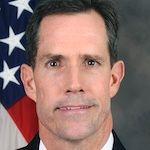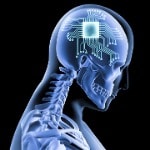Features

The hottest jobs in the world are technology-focused. But the tech industry is vast, and home to a wide variety of niches. If you’re targeting a career at the forefront of the tech, where should you focus your energy? The tech industry moves fast, but it’s not defined by trends; it’s doing the defining. And the biggest trends in technology are also home to some of the hottest jobs of 2021.

As the world recovers from the Covid-19 pandemic, quality engineers working in logistics and supply chain management will play a significant part in rebuilding the supply chains of the modern economy.

Engineers take from their surroundings and make something greater than the sum of its parts. But materials engineers go one step further, creating entirely new materials and structures from which to work.

In 2000, nuclear energy from just 30 countries provided approximately 15 percent of worldwide electricity capacity. But by 2019, its share had fallen to 10 percent, with the International Energy Agency (IEA) predicting that without intervention it would fall even further, to 5 percent, by 2040. That represents a significant drop in what could be an important source of clean energy.

For most of history, urbanization was largely unplanned. That led to overcrowding, inequality, inefficiency, and acute susceptibility to other preventable crises. But today’s cities are armed with some of the most powerful tools ever made available to urban planners: geospatial data and GIS (geographic information systems).

For the last few years, AI has been trumpeted as the solution to many of the future’s problems, especially in the field of healthcare. But in light of the COVID-19 pandemic, it’s being asked to deal with the here-and-now. So far, it’s up to the task.

GIS adds a new dimension to the concept of Big Data. By factoring in the context of time and space, geographic information systems (GIS) allow the human eye to observe how massive data sets change over time and better recognize the patterns that emerge as a result.

One of the more glaring and present obstacles to blockchain adoption is the lack of educational pipelines into the field. But that, too, is changing, and academic institutions are finally beginning to catch up and prepare their students for the decentralized future.

The personal computer, the laptop, and the smartphone are all just chunks of raw material until they’re enlivened by software engineering. The modern world can’t run without it, and the future depends on it. So what’s next?

The field of digital marketing intersects with many other tech industries and grew out of traditional theories of advertising, marketing, and sales. Just like traditional marketing, the goal is to reach your target customer base, build brand awareness, and make a meaningful, data-generating connection.
